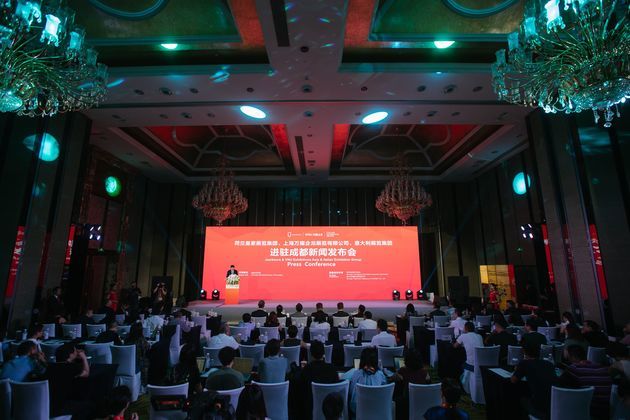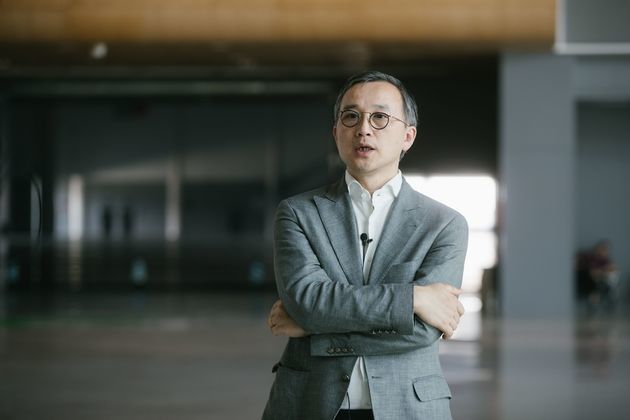
News conference (Photo/Zhang Jian)
Aug. 29 (NBD) – International exhibition giants Jaarbeurs, VNU Exhibitions Asia and Italian Exhibition Group on Wednesday entered into separate agreements to set up joint ventures in southwest China's Chengdu.
Seeing Chengdu as a city that is naturally cut out for the MICE (Meetings, Incentives, Conference and Exhibitions) industry, VNU hopes to bring new projects, exhibition ideas and international operational models to this provincial capital, said David Zhong, chairman of UFI Asia-Pacific Chapter and president of VNU Exhibitions Asia.
"The development of a city is inseparable from MICE. Holding conventions or exhibitions is the best way for the city to promote itself," David Zhong told NBD.
Government support, airports, rails and other connections as well as hotel and leisure infrastructure are essential for a city to develop the MICE industry. Ton Otten, chief supervisor of Europe Asian Global Link Exhibitions, said to NBD that he thought Chengdu is doing well in these aspects. Taking the founding of Jaarbeurs Group as an example, Albert Arp, president and CEO of Jaarbeurs Group, underscored the importance of cooperative efforts among government, media, and businesses, "Jaarbeurs was founded in 1916, by a journalist, businessmen and the mayor".
To depict a clearer picture of the latest development of the MICE industry globally and share experiences in the sector, David Zhong had an exclusive interview with NBD.
David Zhong was elected in July, 2017 as chairman of the Asia-Pacific Chapter of UFI, the world's leading association of tradeshow organisers and exhibition center operators. Zhong initiated UFI China Club in June this year, designed to engage UFI's 100+ members in China.

David Zhong (Photo/Zhang Jian)
MICE industry instrumental to city development
NBD: In recent years, many cities have increased their investment in the MICE industry which is called the "urban development accelerator". In your opinion, what role does MICE play in city development? What possibilities can cities bring to the development of the MICE industry?
David Zhong: The development of a city is inseparable from MICE and the MICE industry functions as a combination of an airport and a museum, the former for connection and the latter for cultural presentation. Without an airport, a city cannot create connection. Without a museum, a city has no culture. Without the MICE industry, a city can hardly be a truly influential city. MICE centers carry too many functions of a city. MICE venues can be places for people to gather together in a city and can also become a business card of the city. Holding conventions or exhibitions is the best way for the city to promote itself.
It is possible that a city develops a pillar industry because of a convention or exhibition, or it has the best exhibition in the world because of a pillar industry. For example, the Pet Fair Asia, first held in Hong Kong in 1997, is the only brand fair in the Asian pet industry that has been certified by UFI. It is the Pet Fair Asia that has made China a high-profile pet market in the whole world.
The MICE industry and cities are connected. MICE venues are essential infrastructure for a city and therefore I am opposed to excessive marketization of venues which have public functions.
NBD: With your 20+ years experience in the MICE industry, how do you evaluate the development of the MICE industry in China?
David Zhong: At present, the MICE industry in China today is like Europe's 20~30 years ago, with venues springing up continually yet facing talent shortage and disorderly competition. We should learn from the advanced concepts of developed countries on how to formulate policies, lay out industries and cultivate talent. Now VNU Exhibition Asia is working on a senior management workshop to establish a learning platform for Chinese decision-makers and executives, thus enabling them to engage in dialogues with officials in the world's leading MICE capitals.
Balance should be kept between policy support and marketization
NBD: The MICE industry gives strong impetus to other industries. As Chengdu is making efforts to build itself into an international MICE city, what do you make of the current development situation of the MICE industry in Chengdu and what suggestions do you have in this aspect?
David Zhong: Chengdu has two advantages, yet room for improvement in two other aspects.
The first advantage lies in the support from the city government. Chengdu takes the lead among China's MICE cities in terms of the formulation of relevant supporting policies. The Western China International Fair is doing well in promoting the city, which is beneficial to make Chengdu an international MICE city.
Second, located along the Belt and Road Initiative Route, Chengdu enjoys great convenience geographically. Besides, the city benefits a lot from the fast development of the western area of China.
However, there also remains space for improvement in terms of talent training and marketization of the industry.
Chengdu is in need of MICE professionals at the moment. Moreover, a balance should be stricken between government support and market-oriented operation. Policy facilitates the creation of a level playing field, and marketization can push forwards the progress of the MICE industry.
NBD: What qualities should MICE talents have? How to cultivate such qualities?
David Zhong: Talent training is not a one-off event and takes unremitting efforts. Most of MICE professionals are now working in Beijing, Shanghai and Guangzhou. What Chengdu and Shenzhen share in common is that they both boast good infrastructure and strong government support, yet the talent supply lags behind the demand. Chengdu and Shenzhen now are standing between first-tier and second-tier city clubs and they both have great potential to join the first-tier group. The cultivation of talents takes time, and a hasty attitude should be avoided by all means. What can be done is to invest in talent training and education.
Email: gaohan@nbd.com.cn


 川公网安备 51019002001991号
川公网安备 51019002001991号





